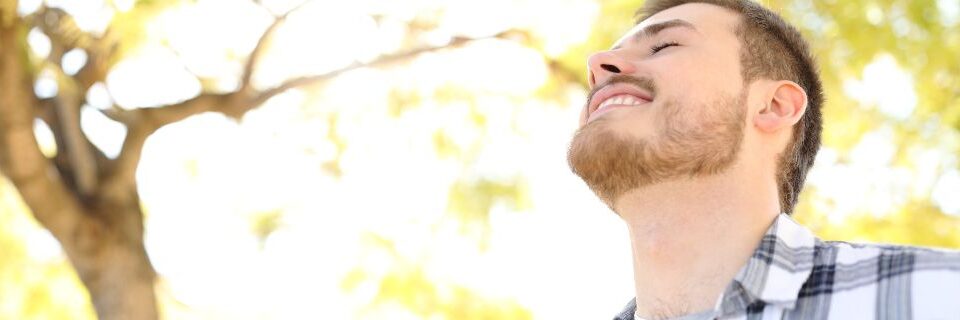
Losing Weight with Weight Loss Hypnosis

Three Reasons to Give the Gift of Hypnosis
Table of Contents
Globally, inadequate sleep is such a pervasive problem that experts consider a public health epidemic. Poor quality sleep can increase the risk of cardiovascular disease, diabetes, obesity and accidents. Getting a good night’s sleep is getting harder for many of us. While sleep is essential for health, modern humans simply are not getting the sleep they need to function properly.
The use of sleep aids is increasing, but another, more natural alternative is available. Is a sleep hypnosis app right for you?
Sleep Aids vs. Sleep Hypnosis
The global sleep aids market is expected to reach 10.9 billion USD by 2024. An increasing incidence of sleep disorders along with an increasing awareness of sleep aids is driving the market. However, because insomnia is the most common sleep disorder, the market is largely dominated by medication, which can include a variety of prescription and over-the-counter medications.
While sleep aid medications can be effective for some people in the short-term, they are not without risk. Some of them are potentially addictive and can cause memory and attention problems, making them unsuitable for long-term use, in many cases. Other medications can increase the risk of physical dependence or have potentially risky side effects, including:
- Unusual dreams
- Appetite changes
- Constipation, gas or diarrhea
- Daytime drowsiness and impairment
- Attention or memory impairment
- Mental slowness or brain fog
- Headache
- Heartburn or stomach pain and tenderness
Medications may also not be advisable for all people, especially those with certain health problems. Those who are taking other medications can be at a higher risk of adverse effects or drug interactions.
Hypnosis offers a drug-free alternative to sleeping aids. With our sleep hypnosis app, we take the tossing and turning out of falling asleep. You will listen to the instructions, which help you get into a state of focused awareness so that you can tune out all external distractions. The hypnosis experience is naturally relaxing, and you can learn to fall asleep more easily.

The Effectiveness of Our Best Sleep Hypnosis App
The research on sleep hypnosis demonstrates that it can help you fall asleep faster, sleep more deeply and enjoy more restful sleep. Sleep hypnosis has been used to treat a variety of sleep issues, including:
- Nightmares
- Sleep terrors
- Sleepwalking
- Bedwetting
- Insomnia
- Sleep anxiety
In one study, researchers divided women into two groups to determine how effective hypnosis could be in addressing sleep quality. The researchers measured and recorded the women’s brain waves using an EEG to determine how much time they spent in slow-wave sleep, which is the most restorative stage of sleep. This allowed them to determine precisely how effective the hypnosis audios were. The results were impressive: The women who used sleep hypnosis audios spent 80 percent more time in deep sleep and slept about 67 percent longer than those who did not use audios. There were no adverse effects associated with hypnosis.
Getting More Sleep with a Sleep Well Hypnosis App
If you have been struggling to fall asleep or stay asleep or you have been feeling less than refreshed when awakening, sleep hypnosis might be right for you, too. Our sleep well hypnosis app is a drug-free alternative that can allow you to relax and get the rest you need without risks or side effects.
At UpNow, we have designed our best sleep hypnosis app with you in mind. Each audio takes less than half an hour, and you can listen to them anytime you have a quiet moment to yourself. Visit UpNow.com today to learn more or to download our app.
UpNow Health only uses high-quality sources, including peer-reviewed articles, to support the facts within our articles. All our articles are reviewed by experts to ensure that our content is accurate, helpful, and trustworthy.
1. Stranges, S., Tigbe, W., Gómez-Olivé, F. X., Thorogood, M., & Kandala, N. B. (2012). Sleep problems: an emerging global epidemic? Findings from the INDEPTH WHO-SAGE study among more than 40,000 older adults from 8 countries across Africa and Asia. Sleep, 35(8), 1173–1181. https://doi.org/10.5665/sleep.2012
2. Chattu, V. K., Manzar, M. D., Kumary, S., Burman, D., Spence, D. W., & Pandi-Perumal, S. R. (2018). The Global Problem of Insufficient Sleep and Its Serious Public Health Implications. Healthcare (Basel, Switzerland), 7(1), 1. https://doi.org/10.3390/healthcare7010001
3. Global Sleeping Aids Market Outlook, Trend and Opportunity Analysis, Competitive Insights, Actionable Segmentation & Forecast 2024. https://www.energiasmarketresearch.com/global-sleeping-aids-market-outlook/
4. High Prevalence of Insomnia to Drive Global Sleeping Aids Market, to witness a CAGR of 6.8% during 2018-2024: Energias Market Research Pvt. Ltd. Energias Market Research. https://www.globenewswire.com/news-release/2018/03/29/1455413/0/en/High-Prevalence-of-Insomnia-to-Drive-Global-Sleeping-Aids-Market-to-witness-a-CAGR-of-6-8-during-2018-2024-Energias-Market-Research-Pvt-Ltd.html
5. Kara Gavin. Sleep Aids Aren’t Safe for Older Adults, but 1 in 3 Still Take Them. University of Michigan Health Lab. http://dev.labblog.uofmhealth.org/rounds/sleep-aids-arent-safe-for-older-adults-but-1-3-still-take-them
6. Choosing Wisely. Insomnia and anxiety in older people. https://www.choosingwisely.org/wp-content/uploads/2018/02/Treating-Insomnia-And-Anxiety-In-Older-People-AGS.pdf
7. Understanding the Side Effects of Sleeping Pills. WebMD. https://www.webmd.com/sleep-disorders/understanding-the-side-effects-of-sleeping-pills#1.
8. Common anticholinergic drugs like Benadryl linked to increased dementia risk. Harvard Health Publishing. Harvard Medical School. https://www.health.harvard.edu/blog/common-anticholinergic-drugs-like-benadryl-linked-increased-dementia-risk-201501287667
9. Eric Suni. Sleep Hypnosis. https://www.sleepfoundation.org/sleep-hypnosis
10. Ng BY, Lee TS. Hypnotherapy for sleep disorders. Ann Acad Med Singap. 2008 Aug;37(8):683-8. PMID: 18797562. https://pubmed.ncbi.nlm.nih.gov/18797562/
11. Maren J. Cordi, Angelika A. Schlarb, Björn Rasch. Deepening Sleep by Hypnotic Suggestion. SLEEP, 2014; DOI: 10.5665/sleep.3778
12. University of Zurich. (2014, June 2). Hypnosis extends restorative slow-wave sleep, research shows. ScienceDaily. Retrieved December 6, 2021 from www.sciencedaily.com/releases/2014/06/140602101207.htm











